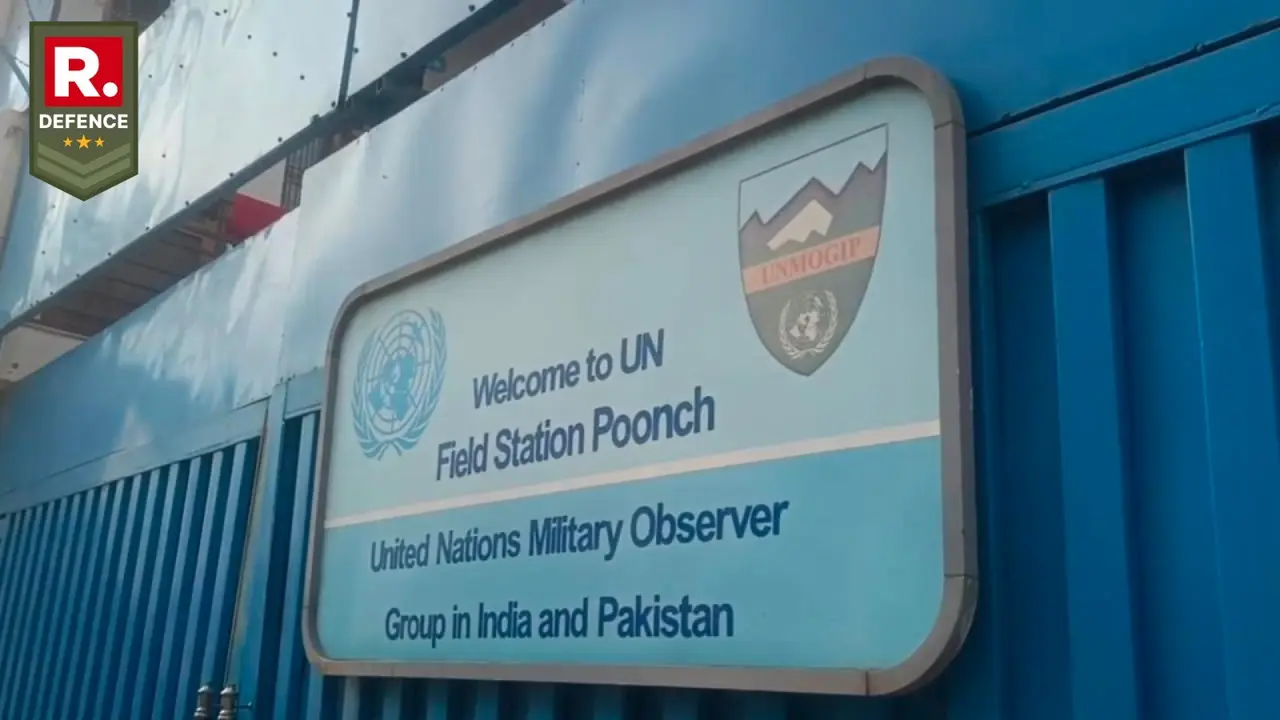Updated 7 May 2025 at 10:01 IST
Operation Sindoor Aftermath: Pakistan Attempts to Hit UN Field Station in Poonch, Fails Yet Again
The shell landed just outside the facility’s gate, raising global alarm as it breached international norms.
- Defence News
- 4 min read

Poonch, India – In a reckless escalation of hostilities, Pakistan’s artillery shelling narrowly missed a United Nations field station in Poonch, Jammu and Kashmir, on May 7, 2025, landing just outside the facility’s gate. The shelling, which occurred in the aftermath of India’s high-stakes Operation Sindoor, has drawn sharp condemnation as tensions between the nuclear-armed neighbors continue to intensify.
India’s Operation Sindoor, launched at 02:05 IST on May 7, struck nine suspected terrorist camps in Pakistan and Pakistan-occupied Jammu and Kashmir (PoJK). The operation was India’s response to the April 22 Pahalgam attack, a coordinated strike by suspected Lashkar-e-Taiba (LeT) and Jaish-e-Mohammed (JeM) operatives that left 26 civilians dead, mostly tourists.
UN Field Station Incident Sparks International Alarm
Pakistan’s artillery shell, which landed dangerously close to the UN facility in Poonch, has raised global alarm, marking a severe breach of international norms. The United Nations Military Observer Group in India and Pakistan (UNMOGIP) operates the field station to monitor ceasefire violations along the Line of Control (LoC).
According to initial reports, the shelling targeted multiple areas in the Poonch-Rajouri sector, with intense fire concentrated around Bhimber Gali. The Indian Army confirmed that Pakistani artillery fire was “unprovoked and aimed indiscriminately,” adding that “India is responding appropriately in a calibrated manner.”
Advertisement
Operation Sindoor: India’s Strategic Strike Inside Pakistani Territory
India’s Operation Sindoor targeted nine locations, four in undisputed Pakistani territory and five in PoJK. The selected targets included major LeT and JeM hubs, marking India’s deepest strikes inside Pakistan since the 1971 Indo-Pakistani War.
- Bhawalpur: A JeM stronghold located approximately 262 km from the border, this strike is the deepest penetration into Pakistani territory in over five decades. Intelligence indicated that the camp was a major training ground for operatives involved in the Pahalgam attack.
- Muridke: The LeT’s headquarters, situated 37 km from the border, was struck with precision munitions. Muridke has long been associated with the group’s leadership, including Hafiz Saeed, who remains a high-value target for Indian intelligence.
- Camp near Sialkot: A terrorist transit camp less than 10 km from the border, suspected to house recruits undergoing weapons training.
In PoJK, the operation focused on dismantling logistical hubs in Muzaffarabad, Gulpur, Bhimber, Chakamru, and Kotli. These locations serve as key nodes for infiltration routes used by Pakistan-backed militants to enter Indian-administered Kashmir.
Advertisement
Escalation Risks as India and Pakistan Trade Blows
The incident at the UN field station has underscored the volatility of the current standoff, with both nations now on heightened alert. Indian security agencies have warned that Pakistan could resort to more provocative actions, including cross-border strikes or terror attacks in the Kashmir Valley, to retaliate for the deep incursions of Operation Sindoor.

Meanwhile, Indian diplomatic channels have been actively engaging key global players, including the US, UK, Saudi Arabia, and UAE, to justify the operation as a counter-terror measure. Indian officials have emphasized that the strikes were “surgically executed” and “limited in scope,” aiming solely to dismantle terrorist infrastructure without targeting civilian or military assets.
Diplomatic Fallout: India’s Offensive and Pakistan’s UN Gambit
Pakistan’s shelling near the UN facility has drawn intense scrutiny, with the UN Security Council expected to convene an emergency session to address the escalating crisis. Sources indicate that India plans to submit detailed evidence linking the Pahalgam attackers to Pakistan-based terror outfits, countering Islamabad’s claims of innocence.
The failed shelling attempt has also cast a spotlight on Pakistan’s military capabilities, particularly its artillery precision – or lack thereof. Indian defence analysts argue that the failed strike underscores a broader pattern of “incompetent targeting” by the Pakistani military, which could backfire diplomatically as international attention mounts. With both nations now locked in a cycle of provocation and retaliation, the risk of a larger conflict looms ominously, raising fears of another Kargil-style confrontation – but with nuclear-armed stakes.
Watch - Maj. Gen. GD Bakshi Hints at Possible BrahMos Use in Cross-Border Counterterror Ops | Wargaming
Published By : Yuvraj Tyagi
Published On: 7 May 2025 at 10:01 IST
